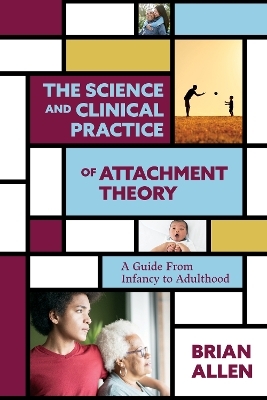
The Science and Clinical Practice of Attachment Theory
American Psychological Association (Verlag)
978-1-4338-3761-6 (ISBN)
Attachment theory is often mischaracterized as focusing solely on maternal influences in early childhood, but developmental science has explored the important roles that other attachment figures play throughout one’s life, including foster parents, social peers, and romantic partners. Following the history and evolution of attachment research, this book translates foundational knowledge into clinical practice by reviewing interventions such as parent training techniques, attachment‑based family therapy, and mentalization‑based therapy. These attachment-based interventions are differentiated from other, harmful treatments that have been erroneously linked to attachment theory, being labeled by their proponents as “attachment therapy.”
Key concepts such as internal working models and secure vs. insecure attachment scripts are described, as are important assessment measures like the strange situation procedure and the adult attachment interview. Special features highlight notable topics and controversies in attachment theory and research and present case studies that bring clinical guidance to life.
Brian Allen, PsyD, is Director of Mental Health Services in the Center for the Protection of Children at the Penn State Children's Hospital and Associate Professor of Pediatrics and Psychiatry at the Penn State College of Medicine. He conducts research on the developmental impact of childhood trauma and maltreatment, the effectiveness and implementation of clinical interventions for children, and problematic sexual behavior among preteen children. He has authored numerous works on the clinical application of attachment theory, including “A RADical Idea” (2016), one of the most-read and most-cited articles in the journal Evidence-Based Practice in Child and Adolescent Mental Health.
Preface
Introduction: The Challenges and Promises of Attachment Theory for Mental Health Practitioners
Part I. The Science of Attachment Theory
Chapter 1: The Historical Foundations of Contemporary Attachment Theory: From John Bowlby to Mary Ainsworth
Chapter 2: Attachment During Infancy and Early Childhood: Understanding Attachment Behavior
Chapter 3: Attachment During Middle Childhood: Internal Working Models and Developmental Trajectories
Chapter 4: Attachment During Adolescence: Evolving Caregiver Relationships and the Role of Peers
Chapter 5: Attachment During Adulthood: Being a Parent and a Partner
Part II: The Clinical Application of Attachment Theory and Research
Chapter 6: Attachment and Clinical Practice With Infants and Young Children: The Field of Infant Mental Health
Chapter 7: Attachment and Clinical Practice With School-Age Children: At the Intersection of Clinical and Developmental Science
Chapter 8: Attachment and Clinical Practice With Adolescents: Building Autonomy and Connectedness
Chapter 9: Attachment and Clinical Practice With Adults: Applications to Individual and Couple Therapy
Part III. Questions and Controversies
Chapter 10: “Attachment Disorder,” “Attachment Therapy,” and the Redemption of a Clinical Theory
Chapter 11: Frequently Asked Questions
References
Index
About the Author
| Erscheinungsdatum | 31.01.2023 |
|---|---|
| Verlagsort | Washington DC |
| Sprache | englisch |
| Maße | 152 x 229 mm |
| Themenwelt | Geisteswissenschaften ► Psychologie ► Entwicklungspsychologie |
| Geisteswissenschaften ► Psychologie ► Klinische Psychologie | |
| Medizin / Pharmazie ► Medizinische Fachgebiete ► Psychiatrie / Psychotherapie | |
| ISBN-10 | 1-4338-3761-7 / 1433837617 |
| ISBN-13 | 978-1-4338-3761-6 / 9781433837616 |
| Zustand | Neuware |
| Haben Sie eine Frage zum Produkt? |
aus dem Bereich


